I know exactly how you feel—anxious, overwhelmed, and scouring the internet for a clear path to IELTS success.
Back in 2023, I was in your shoes, desperately devouring every blog and pestering all my friends for advice.
That frantic research ultimately paid off with a sweet Band 8.0 score, but the process itself was a major headache!
That’s exactly why I’ve created this ultimate beginner’s guide—the one I wish I’d had. Consider this your one-stop solution to cut through the confusion, build a solid preparation plan, and walk into your test with unshakable confidence.
Work smarter, not just harder. It’s about mastering the strategy, not just the material.
Let’s get to the point, and feel free to jump to any section:
- What is IELTS?
- Who should take the IELTS?
- IELTS Academic vs. General Training (GT)
- Test Format
- IELTS Band Score: Scoring Scheme
- Computer-Based (Online) vs. Paper-Based (Offline)
- How to Register for IELTS
- IELTS exam dates 2025
- IELTS Registration fee
- IELTS Eligibility
- IELTS One Skill retake
- IELTS FAQs
What is IELTS?
If you’re dreaming of studying at an international university, moving abroad, or boosting your career, you’ll likely need to prove your English skills. That’s where the IELTS comes in.
The International English Language Testing System (IELTS) is the gold standard for English proficiency tests. It’s a trusted and standardized way to assess your English ability if it isn’t your first language.
The test is co-owned by three heavyweight organizations you can trust: the British Council, IDP: IELTS Australia, and Cambridge University Press & Assessment.
Who should take the IELTS?
It is ideal for you if you fall into one of these categories:
- A student planning to pursue higher education at a university in an English-speaking country.
- A professional seeking employment, professional registration (e.g., for doctors, nurses), or an internship abroad.
- A migrant applying for a work visa, permanent residency, or citizenship in countries like the UK, Australia, Canada, or New Zealand.
IELTS Academic vs. General Training (GT)
Your first step should always be to check the specific requirements of the organization you’re applying to, as they will state which test version (Academic or General Training) you need.
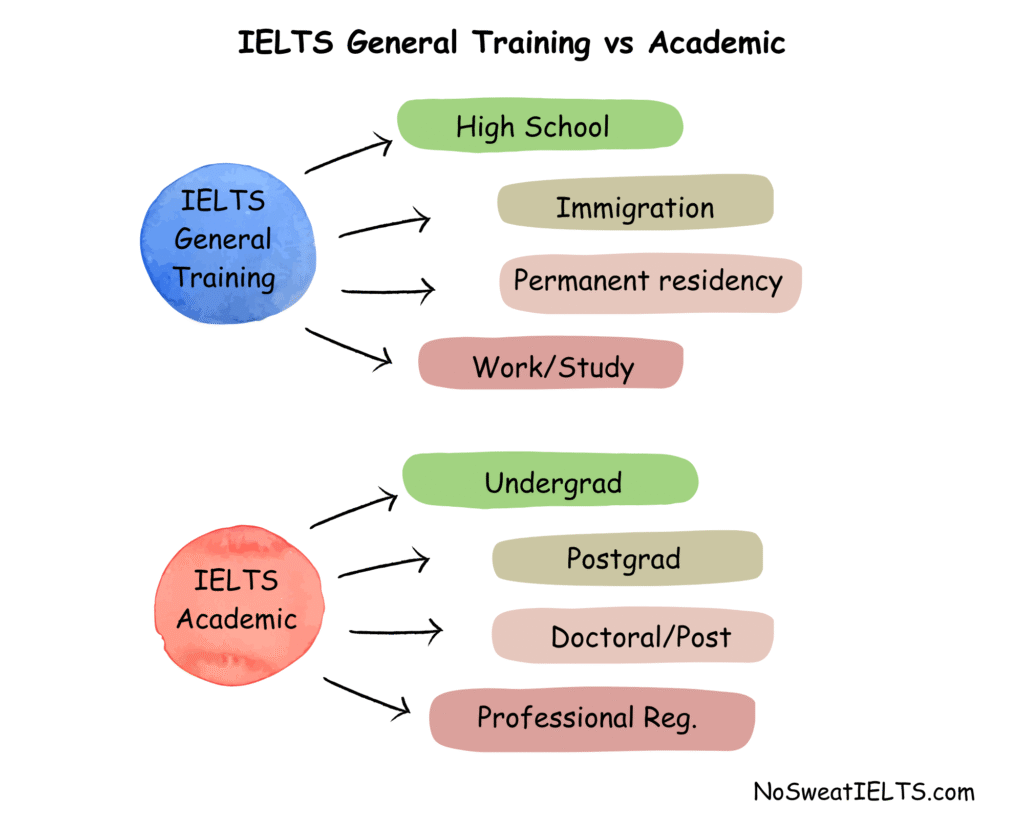
If the requirements are unclear, a safe general guideline is to lean towards the IELTS Academic test for any higher education or professional registration purposes. It is specifically designed for university entry, featuring more complex reading and writing tasks on academic topics.
The General Training test, focused on everyday English in social and workplace contexts, is typically required for most immigration and non-academic purposes. When in doubt, always contact the organization directly for confirmation.
For a detailed breakdown, check out our full post on IELTS Academic vs General Training.
Test Format
IELTS has four sections, which are always in this sequence:
- Listening
- Reading
- Writing
- Speaking
Let’s dive deeper. Here’s a complete format breakdown for each section:
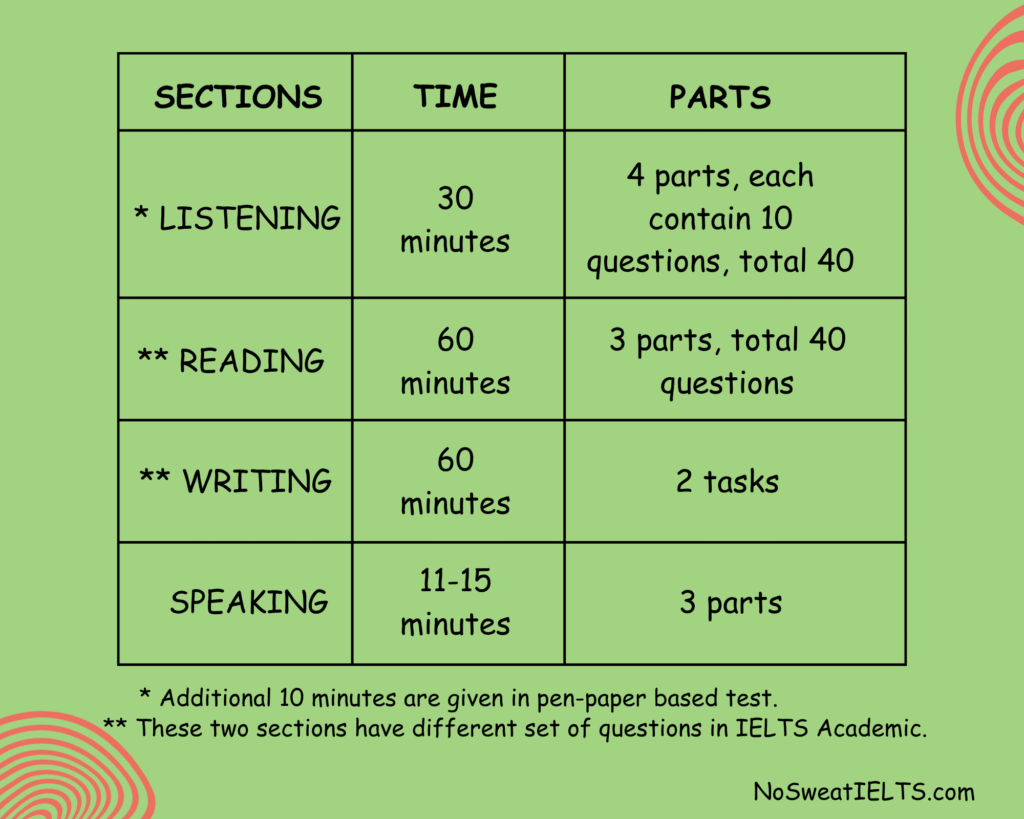
You will take the Listening, Reading, and Writing tests in one sitting without any break, and the test lasts for 2 hours and 30 minutes.
The Speaking test is conducted separately, often on a different day. This is actually a benefit—it gives you time to mentally prepare for a face-to-face conversation.
IELTS Band Score: Scoring Scheme
IELTS does not have a pass or fail system. Instead, your English proficiency is measured on a 9-band scale, ranging from 1 (a non-user) to 9 (an expert user).
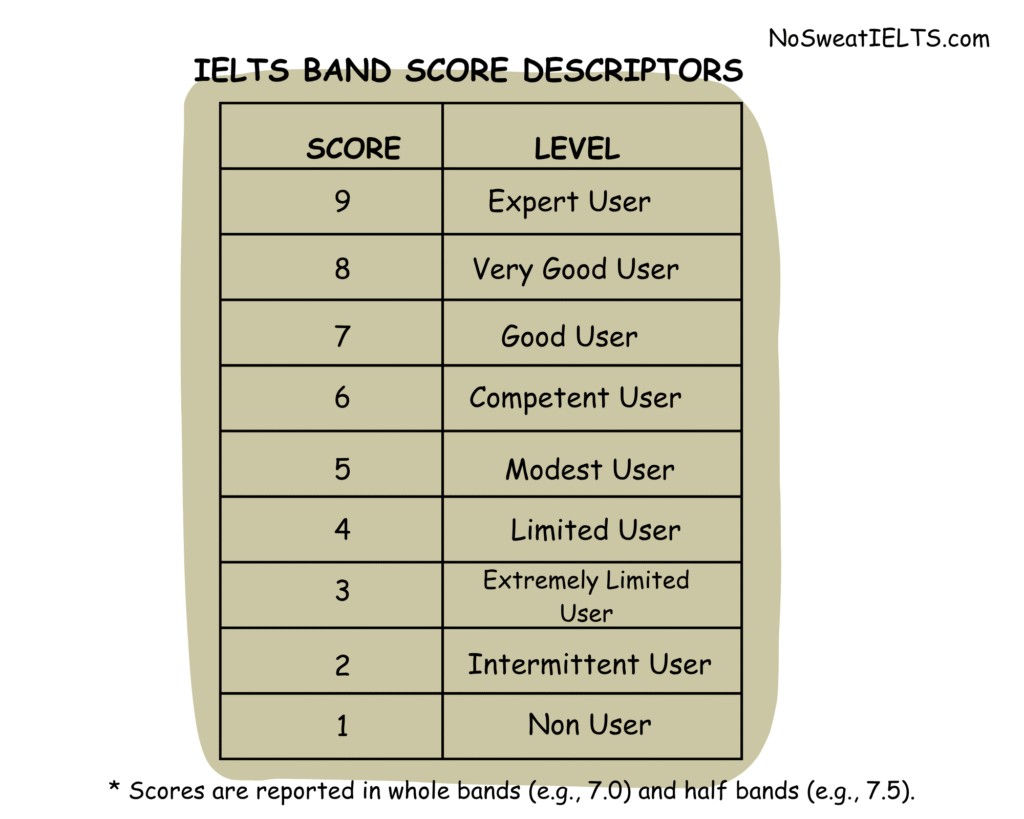
In the Listening and Reading sections, there is no negative marking. You earn one mark for each correct answer, and your raw score is then converted into the corresponding band score.”
Computer-Based (Online) vs. Paper-Based (Offline)
“When deciding between the offline (pen-and-paper) and online (computer-delivered) IELTS, it’s important to know the core differences:
- In the computer-delivered test, you type your answers directly.
- In the paper-based test, you write your answers by hand.
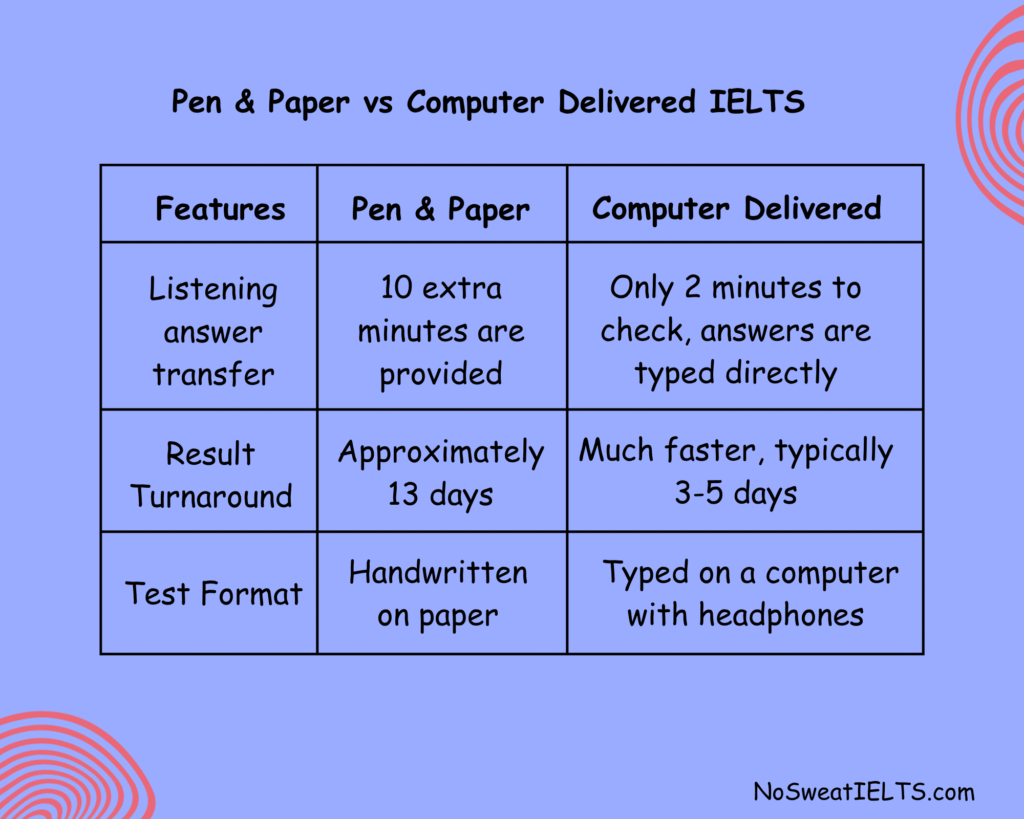
However, the content, difficulty, and scoring between the two formats are identical.
How to register for IELTS?
To apply for the IELTS, you must register through one of its two official co-owners: the British Council or IDP: IELTS Australia. (Cambridge English creates the exam but does not handle registrations.)
The registration process itself is straightforward and can be completed online in a few steps. You will need to:
- Go to the official website of your chosen provider (British Council or IDP).
- Find a test center and a suitable date.
- Create an account and fill out the application form online.
For a visual, step-by-step guide with screenshots, you can refer to this detailed blog post.
IELTS exam dates 2025
IELTS test dates are frequent, with sessions available almost every week throughout the year.
Because slots fill up quickly, it’s highly recommended to book your test well in advance.”

Aim to secure your place at least one month before your preferred date, or even earlier (6-8 weeks) if you have a strict deadline to meet.
IELTS registration fees
The IELTS registration fee is set locally and varies by country. For example, in India, the fee for the Academic or General Training test is currently around ₹18,000 INR.
Important: This fee is subject to change, and it’s crucial to check the official IELTS website or your local test center for the most up-to-date pricing before you register.
IELTS Eligibility
“Yes, IELTS is designed to be accessible to anyone who needs to prove their English proficiency. There is no formal eligibility criterion based on your educational background or nationality.
However, it’s important to note:
- The test is not recommended for individuals under 16 years of age, as the content is designed for adults and young adults.
- The only true ‘requirement’ is that you must have a valid reason for taking it, such as applying to a university, for a work visa, or for immigration purposes. Your target organization will have the specific score requirements you need to meet.
IELTS One Skill retake
Eligibility: To be eligible, you must have recently completed a full computer-delivered IELTS test at an eligible test centre and already received your scores.
Key Details:
- You must book your One Skill Retake within 60 days of your original test date.
- The cost varies by country (e.g., it is approximately 16,250 INR in India).
- You can retake any one of the four skills: Listening, Reading, Writing, or Speaking.
- You will receive a new Test Report Form (TRF) with the updated score, which can be used alongside your original one.
FAQs
- What is the validity of my certificate?
Your IELTS Test Report Form (TRF) is typically valid for two years from the date your results are issued. - What if I need to cancel or transfer my test date?
You can request a refund or transfer, but strict deadlines and administrative fees apply. You must contact your test center (IDP or British Council) as far in advance as possible. - What if I get sick on the exam day?
You must immediately contact your test center and provide a medical certificate. You may be eligible for a refund or transfer, but this is subject to approval and not guaranteed. - What can I bring into the test room?
Only your valid passport/national ID (the same one you used for registration) and a clear, sealed bottle of water. All other personal items, including mobile phones, bags, and watches, are strictly prohibited inside the test room, but the centers usually provide lockers. - How to check my IELTS result?
Your results will be available online for the computer-delivered test (typically in 3-5 days) and for the paper-based test (in 13 calendar days), which you can access through your login ID and Password. You will also receive a physical Test Report Form (TRF) by mail. - What if I am not satisfied with my result?
You can apply for an Enquiry on Result (EOR) at your test center for a fee. If your score changes, this fee is fully refunded. - How many times can I take IELTS?
There is no limit. You can retake the test as many times as you need. - Which is easier, Computer-Delivered or Paper-Based IELTS?
Neither. The content, difficulty level, and scoring system are identical. The choice depends entirely on your personal preference for typing or writing by hand.
“I hope this guide has made the IELTS feel like a less daunting task. I am committed to helping you succeed, with more exciting and practical content on the way to help you achieve your dream score.
Stay tuned for more guides and tips!
Note: Some of the resources mentioned in this blog will be available shortly. I am constantly updating my content to serve you better.

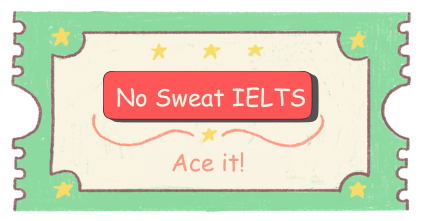
some really excellent information, Gladiolus I found this.